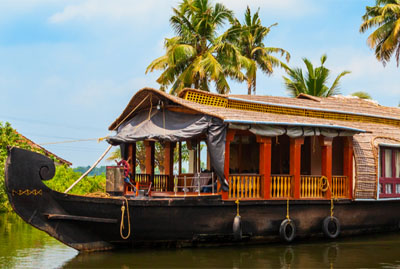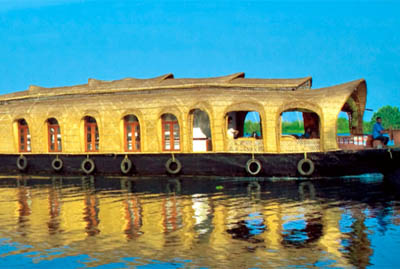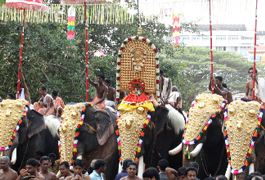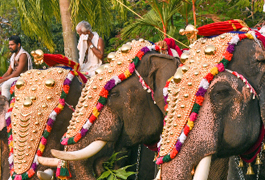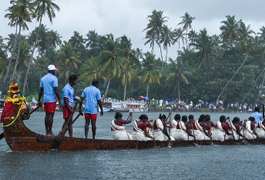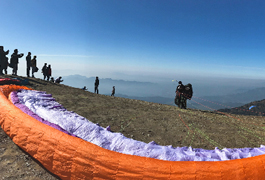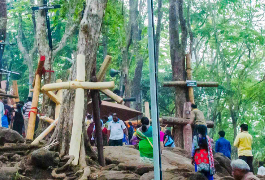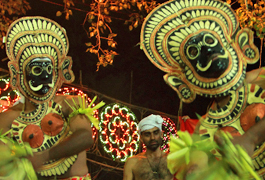The grand Guruvayur festival in Kerala is a major draw for tourists worldwide. The city seems to bubble with joy and enthusiasm as the festival days approach toward the middle of March. During the festival, the gorgeously decorated elephants and splendid illumination with tall traditional lamps make for a sight to behold. This festival begins with the elephant race, and the ceremonial flag is hoisted on a pooyam asterism day.
Check out Kerala Tour Packages, Varkala Tour Packages, Alleppey Tour Packages
History and Story of Guruvayur Temple
The temple, constructed between the 16 and 17 century, is one of the major religious sites in Kerala. The presiding deity here is ‘Guruvayurappan’ (Lord Krishna). The temple still maintains its conservative norms and allows only Hindus inside. However, elaborate rituals are performed regularly. Legend has it that the rites were originally prescribed by the Hindu prophet Adi Shankaracharya who hailed from this part of Kerala. The most striking thing about the temple is that the elephants are still an integral part of the regular rituals, while in the other temples of Kerala, they are used only at festivals.
Check out Kumarakom Tour Packages, Periyar Tour Packages, Cheruthuruthy Tour Packages
Significance and Celebration of Guruvayur Festival
The 10-day Guruvayur Festival signifies the occasion of the restoration of divine Chaitanya (conscious). An elephant race inaugurates the festival, and it is a unique event. The winning elephant is conferred with the honor of carrying the deity’s idol. The Guruvayur festival also showcases the region’s cultural heritage as the locals perform the traditional dances and music. The enticing dance dramas based on the myths and legends of Lord Krishna’s life are regular proceedings during the festival days.
Explore Kerala tour package for 7 nights 8 days
A tour to the Guruvayur during the festival provides you fantastic opportunity to experience the life and culture of the region. Add to that the lip-smacking traditional cuisine of Kerala, which becomes the focus during the festive seasons.
Browse through our Munnar Tour Packages from Bangalore




